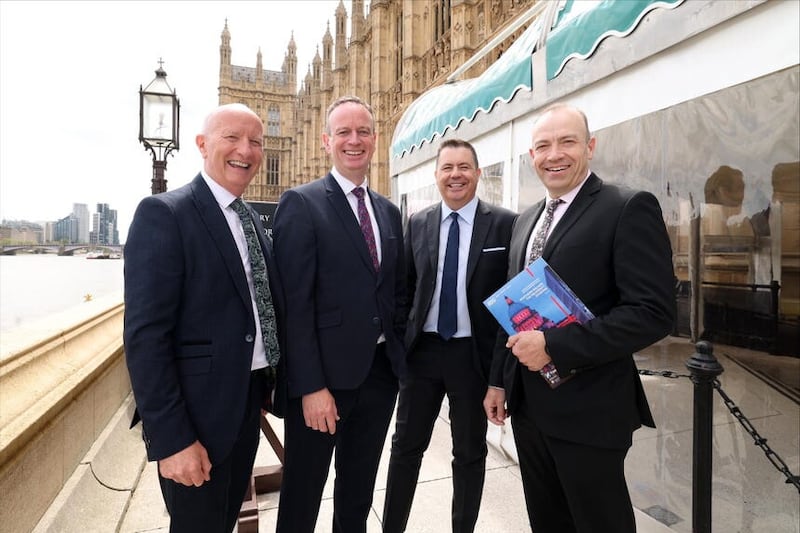WITH our newly elected 462 local councillors taking their seats in the 11 councils, Retail NI has published its 'Revive NI' document which sets out key policy priorities to create green 21st century high streets, empower local councils and fix our broken and antiquated business rating system.
Retail NI wants to see refocused, reinvigorated, and resourced local councils that will be the change-makers helping to create 21st century high streets and be key partners in making Northern Ireland the very best place to locate, start and scale up a business.
Alongside a dynamic retail and hospitality offering we also need to ensure our villages, towns and cities become multi-functional hubs with libraries, community services, police stations, healthcare, leisure, education, open spaces, housing, and sports facilities.
The future success of our high streets cannot be approached in isolation from the other functions city/town centres should serve, particularly as places for work. Our councils have an important role to create the right conditions to attract businesses to areas around high streets, by ensuring the provision of high-quality office space.
The question Retail NI members ask is how we can get local, regional, and national governments all pushing in the one direction and more importantly, how can all policy priorities be delivered so we can create re-purposed and regenerated high streets.
Retail NI wants a restored Stormont Executive to bring forward an agreed ‘Local Government Devolution Bill’ to give our councils the powers and responsibilities to be the game changers for their high streets.
This Bill would include regeneration powers, so that investment decisions could be based directly on what local economies and local businesses need in terms of future and present workforces to create jobs.
Councils here should be given additional traffic management powers and responsibility for neighbourhood services to ensure they can deliver real and accountable change for their local communities.
For an incoming Executive, we also set out our new proposals for additional rates relief to incentivise businesses to scale-up and create new jobs or invest in energy efficient technology. In addition we are outlining proposals for an FDI rate relief scheme to encourage new companies to locate in disadvantaged areas to boost local economies.
Government at all levels must redouble their efforts to make town centres and high streets more sustainable to improve people's health and wellbeing. This means a change in the way that we live, work, and move around will be essential if we are to reach net zero by 2050.
The provision of more housing in town centres and increased variety of jobs and other amenities would encourage people to walk and cycle. This would help cut carbon emissions, improve air quality and help towards net zero. An academic research paper by Marseille et al (December 2020) on urban biodiversity suggests that parks and green spaces not only encourages people to exercise, but it also has a positive impact on their mental health.
Councils should use their planning powers to fast-track more town and city centre based residential schemes to breathe new life into our high streets and champion Carlos Moreno’s “15 Minute City” concept building upon Ebenezer Howard’s “garden city” movement. This concept promotes the benefits of mixed use and inclusive neighbourhoods. The central idea is that people should not have to walk, or cycle more than 15 minutes from their home to work, shop, or access education and healthcare.
At present our 11 councils are the only functioning and accountable level of government in Northern Ireland. Every sector of our local economy needs to repurpose and reinvigorate its relationship with them, and co-design agreed solutions to the many economic challenges that lie ahead.
:: Glyn Roberts is chief executive of Retail NI. Download Revive NI at www.retailni.com









